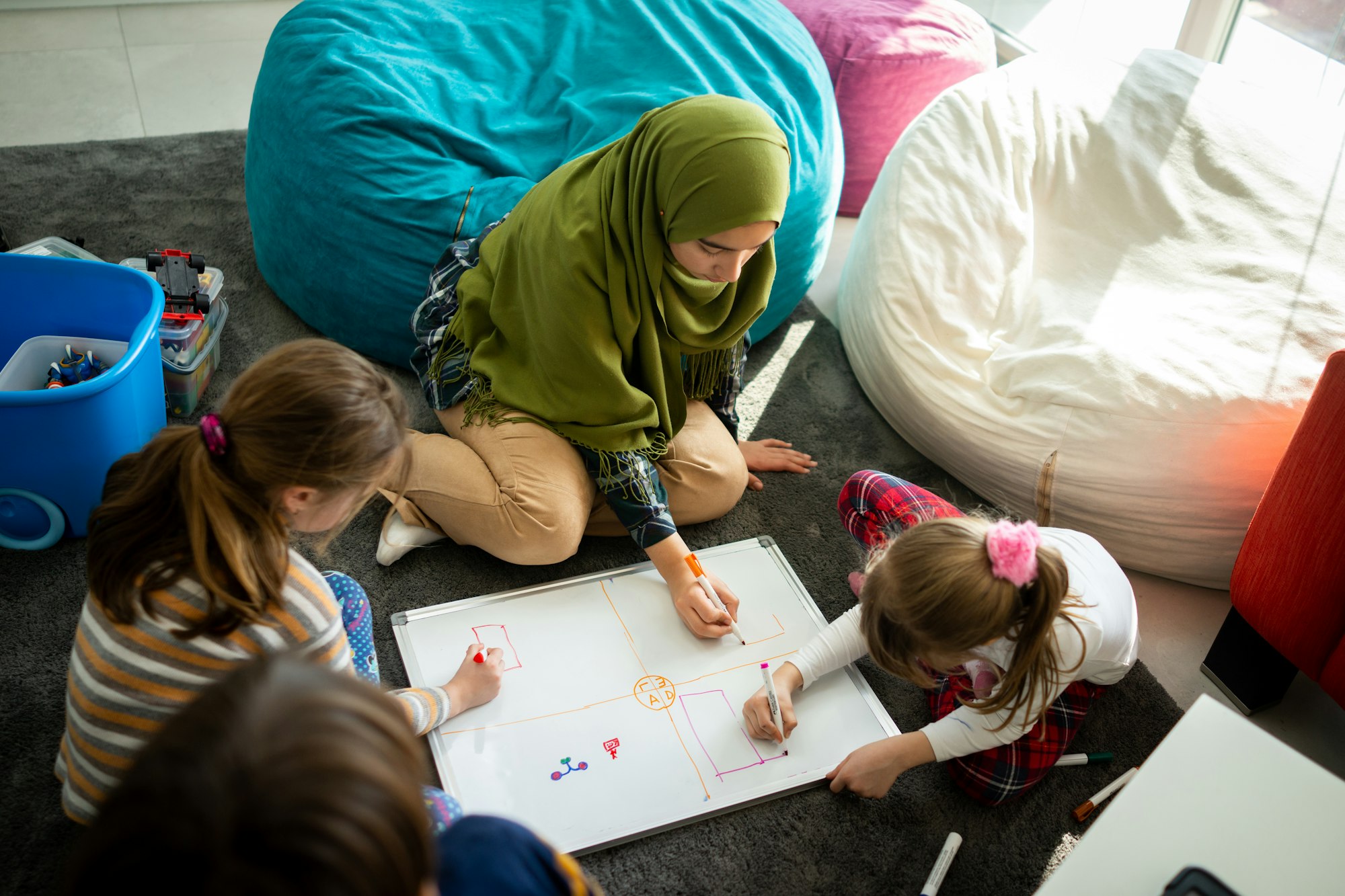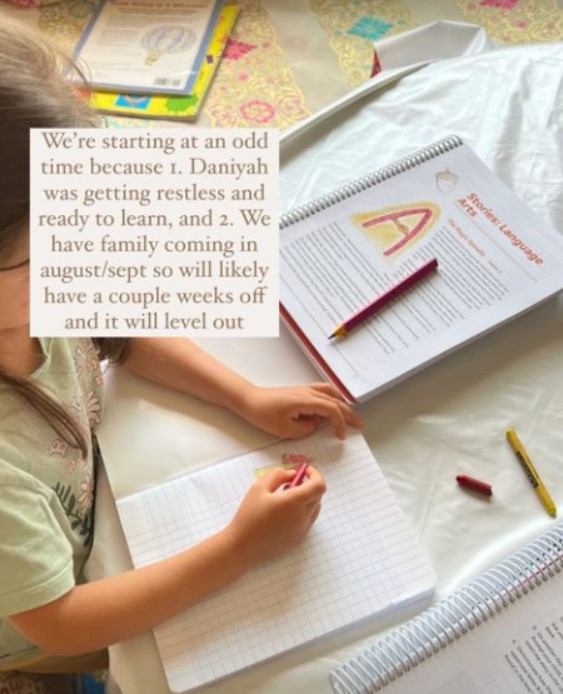
Homeschooling is an increasingly popular choice for many families, offering a more flexible, personalized education for children. For Muslim parents, homeschooling can also present an opportunity to nurture both academic excellence and Islamic values in the home environment. Learn more about it here.
One homeschooling advocate who has been gaining attention on TikTok is Karsen Breanne, known for sharing her personal experiences and practical advice for homeschooling families. In this article, we’ll explore some of her helpful insights on homeschooling and how they can benefit Muslim families who are considering or already practicing this method of education.
One of the main attractions of homeschooling, as Karsen Breanne often shares, is the flexibility it provides. Homeschooling allows parents to structure their day in a way that works best for their family. Unlike traditional schooling, which follows a rigid timetable, homeschooling can adapt to the natural rhythms of family life.
Karsen emphasizes the importance of creating a routine that balances learning with the needs of the family. For Muslim parents, this flexibility is particularly useful for incorporating daily prayers (Salah), Quran recitation, and other spiritual activities into the schedule. It also allows for customization of learning times during Ramadan or when attending Jumu’ah prayers on Fridays.
View this post on Instagram
Tip for Parents: Start by creating a loose schedule that includes both structured learning time and moments for breaks, prayer, and family activities. This keeps the day organized but not overly strict, allowing your child to thrive in a relaxed environment.
One of the most common concerns for homeschooling parents is choosing the right curriculum. Karsen Breanne shares helpful advice on selecting educational resources that suit both the learning style of the child and the educational goals of the parents. She recommends using a mix of structured curriculum and creative resources to keep learning engaging.
For Muslim parents, this could mean combining mainstream academic materials with Islamic studies. There are various homeschooling curriculums designed specifically for Muslim children, covering subjects like Quran, Arabic, and Islamic history alongside traditional subjects like math and science.
Tip for Parents: Research a variety of curriculum options, including Islamic-focused resources, to find what works best for your child. It’s okay to experiment and adjust as needed. Make sure to also include books, videos, and other interactive learning tools that promote a love of learning.
Homeschooling is not without its challenges, and Karsen Breanne is transparent about the obstacles many families face. Whether it’s managing time, ensuring socialization, or overcoming burnout, homeschooling can sometimes feel overwhelming. She advises parents to give themselves grace and remember that homeschooling is a journey, not a race.
One common concern for Muslim homeschooling parents is finding social opportunities for their children. While homeschooling provides a close-knit family learning environment, socializing with peers is also important for a child’s development. Karsen Breanne encourages parents to seek out local homeschooling groups or activities where children can interact with others. For Muslim families, this could include joining Islamic study groups, attending weekend Islamic schools, or organizing playdates with other Muslim homeschooling families.
View this post on Instagram
Tip for Parents: Be patient with yourself and your children. It’s normal to encounter challenges, but there are many ways to find support. Don’t hesitate to connect with local or online homeschooling communities, including those specifically for Muslim families, to share ideas and experiences.
Karsen Breanne frequently shares videos of her children engaging in fun, hands-on learning activities. She believes that learning should not be limited to textbooks but should include creative, interactive experiences that keep children engaged and excited about learning. This could be anything from outdoor nature walks, science experiments in the kitchen, or even art projects that tie into academic subjects.
For Muslim parents, this is a great opportunity to incorporate Islamic values and teachings into everyday learning. For example, while learning about biology, you could discuss the wonders of Allah’s creation. When teaching history, you can integrate stories of the Prophets or the rich heritage of Islamic civilization.
Tip for Parents: Incorporate activities that make learning fun and meaningful. Use play-based learning for younger children or project-based tasks for older kids. Look for ways to tie lessons back to Islamic principles, fostering both academic and spiritual growth.
 Image from ‘Homeschooling’ highlight on Instagram @karsenbreanne
Image from ‘Homeschooling’ highlight on Instagram @karsenbreanne
One of the standout aspects of Karsen Breanne’s approach to homeschooling is her emphasis on building a supportive community. Homeschooling can sometimes feel isolating, but by connecting with other families, parents can find encouragement, share resources, and offer support to one another.
Muslim parents can benefit from joining local or online communities where Islamic homeschooling is practiced. Many groups provide advice, curriculum suggestions, and a space to share struggles and successes. Being part of a like-minded group can also offer opportunities for group outings, Islamic workshops, or shared classes for children.
Tip for Parents: Don’t go through homeschooling alone. Look for or create communities with families that share your values, whether it’s through social media, local homeschooling co-ops, or Islamic centers. Building a support network will provide inspiration and help you navigate challenges more effectively.
Homeschooling is a beautiful way to tailor your child’s education to their unique needs while fostering a strong connection to Islamic values. As Karsen Breanne’s experience shows, homeschooling offers the freedom to create a learning environment that reflects your family’s priorities, whether it’s a flexible routine, integrating fun activities, or overcoming challenges with grace.
By thoughtfully applying these tips and using Karsen Breanne’s approach as inspiration, Muslim parents can create a rich, nurturing homeschooling experience that strengthens both their children’s knowledge and their Islamic identity. Homeschooling, with all its challenges and rewards, can truly be a path to a more personalized, faith-centered education for Muslim families.